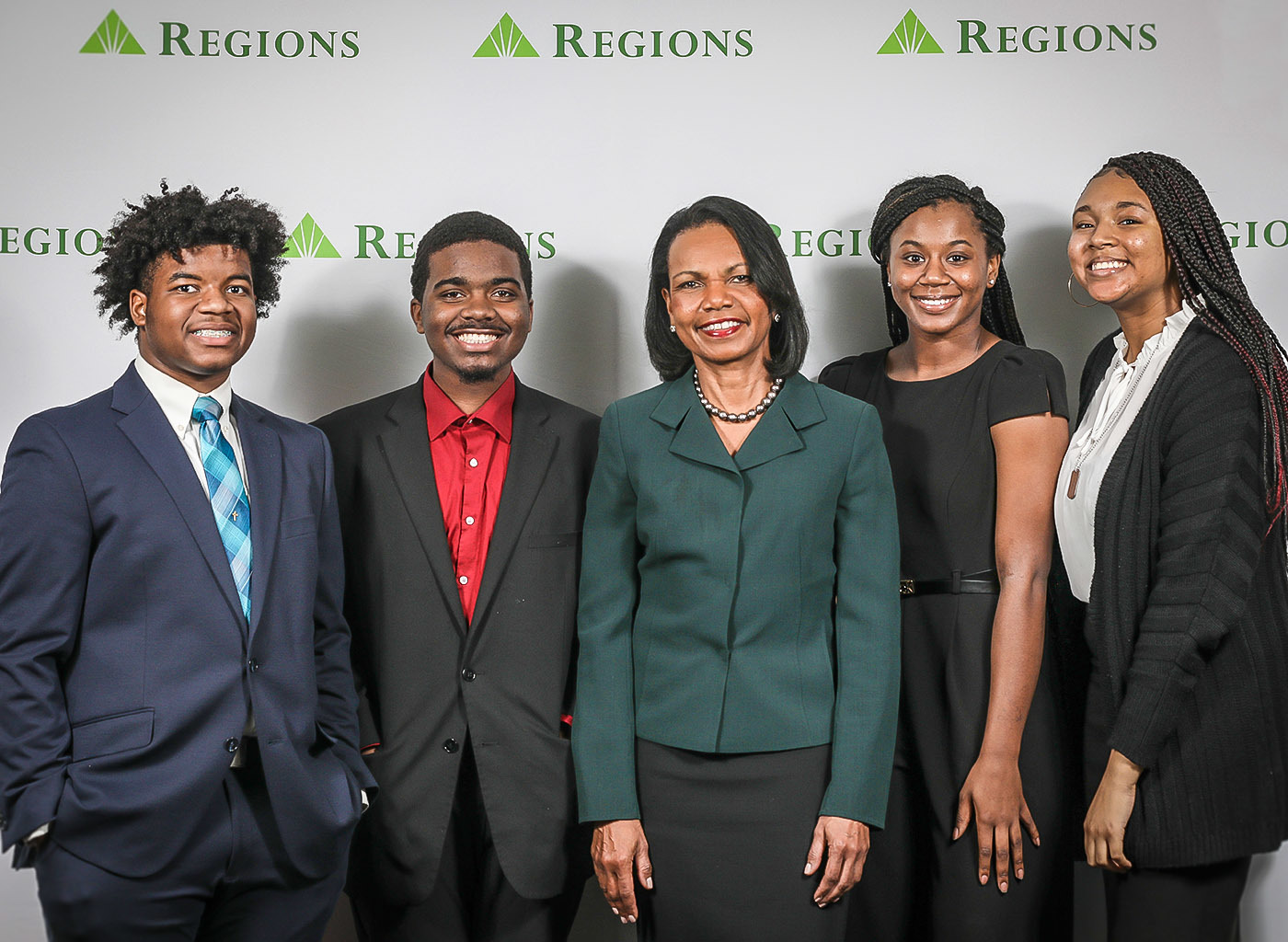There are three ways to deal with barriers.
Go around them. Go over them. Or, if you have to, just go right through them.
That’s what she did. And she’s encouraging today’s youth to do the same.
Sixty-sixth Secretary of State Condoleezza Rice offered the advice to a group of high schoolers gathered at Regions Bank’s headquarters in Birmingham, Alabama. In an auditorium not far from the home where Secretary Rice grew up, the leader who would become the first African-American woman to serve as U.S. National Security Advisor and, later, Secretary of State, was investing her time, experience and insights into the next generation.
But before sharing her perspectives, Secretary Rice did something all good leaders do.
She listened.
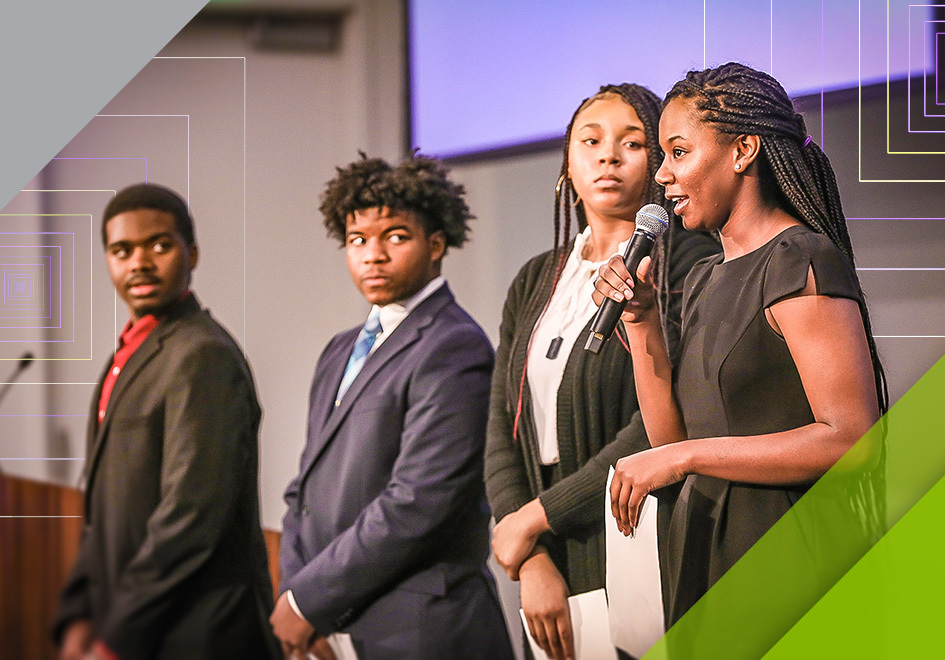 Students delivered timely and effective comments, raising awareness of issues important to their generation while listening to feedback from Secretary Rice and other leaders.
Students delivered timely and effective comments, raising awareness of issues important to their generation while listening to feedback from Secretary Rice and other leaders.
The high schoolers are part of the Educate Local program within Birmingham City Schools. They were taking part in Persuasive Points of View, a discussion organized by the Birmingham Education Foundation and Regions as a chance for students to practice persuasive speaking skills and gain valuable advice from those who’ve gone before them.
Each student group had compelling comments – and relevant questions.
“Why are 13 years of school experience broken down into four hours of an ACT test?” asked Kayla Seals from Ramsay High School’s Academy of Engineering. She and her team advocated for alternative measures of reflecting the readiness of today’s youth for college admissions.
Determination, mindset and a student’s collective achievements should count for more than a standardized test, they advocated. Plus, they said, the test itself can put lower-income students at a significant disadvantage.
“The average cost of ACT prep is between 45 and 600 dollars an hour, which can be a huge challenge for someone who is not able to pay for it,” Seals said.

Students from Woodlawn and Wenonah High Schools teamed up to address funding for fine arts – and the need to preserve and grow it.
Raymond Hall divided a musical measure into notes and illustrated, “Music is math.” Indeed, Secretary Rice agreed, music was once seen as a branch of mathematics.
“Fine arts allow you to think critically,” added Jaylen Green, who showed how the arts and humanities are not just tools for personal expression. “They challenge our perceptions of society. The arts are a universal language that helps us understand diversity, culture and our most complex issues.”
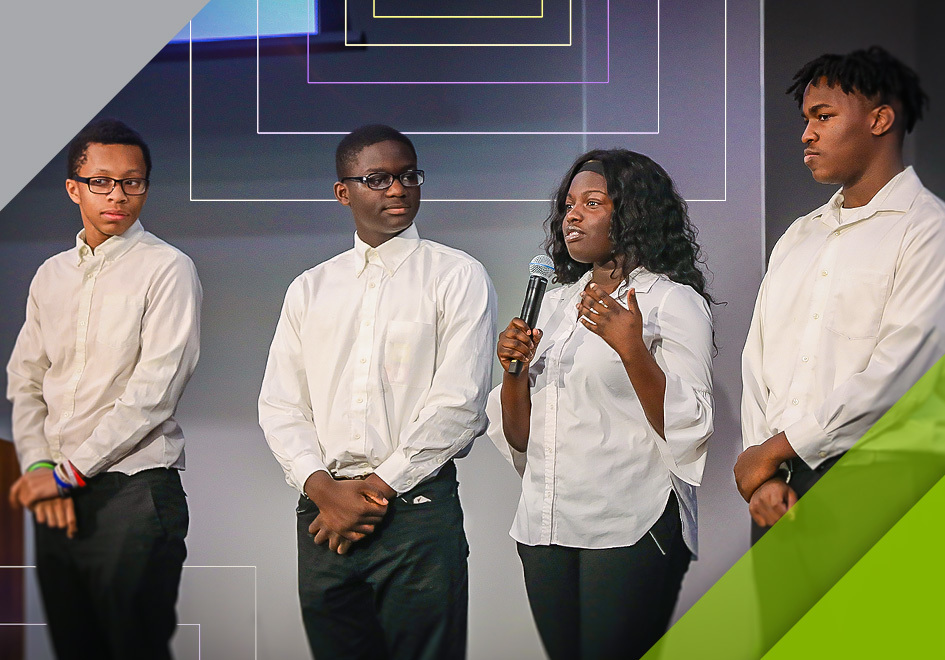
Students from Carver High advocated for changes to the cellphone policy within Birmingham City Schools. Indeed, if a student uses a cellphone in a way that causes a disruption, they should be punished, the high schoolers acknowledged. At the same time, watching a fun video on a phone to unwind during lunch, or supplementing classroom technology with tools on smartphones, can offer benefits, they added.
Superintendent Dr. Lisa Herring, part of a panel listening to the presentations, said students made a particularly compelling argument when discussing the safety implications of a phone being collected by school personnel as punishment. The punishment may be appropriate depending on how the phone was being used. But keeping the phone past the end of the school day could deprive students of an essential communications tool after school hours, the students said.

Pointing to cellphones as both a valuable tool, and a potential distraction, Dr. Herring invited students for a deeper discussion on how devices should be managed.
“It provides for you, in the palm of your hand, access to so many things that you’re used to in your generation, and we recognize that,” she said. “But it also takes your hand away from reaching out across the table to get to know someone. And that’s important.”
Presentations completed, Secretary Rice addressed the students, offering equal parts encouragement – and challenges.
“You’re always going to be better at persuasion and at bringing other people along if you’re passionate about something,” she advised. “Don’t let anybody else define your passion. Your passion is your passion. Pursue it with all of your strength.”

Also – earn mentorship. Don’t ask for it. Rather, achieve it by finding someone you admire who shares your passion – and then building their respect and advocacy by working hard and being responsible. But while building your achievements, Secretary Rice said, don’t forget the value of service.
“Service to others is actually the highest form of leadership,” she said. “When you are serving those who have less than you do, you will find yourself not asking, ‘Why don’t I have?’ You will find yourself asking, ‘Why do I have so much?’”
Be determined to achieve your goals. But there’s also a healthy balance to strike.
“Put some boundaries around how much you try to do in a day,” Secretary Rice said. “Tell yourself, ‘I’m going to have some time that is for me.’ Whatever that means to you, you need to do that.”
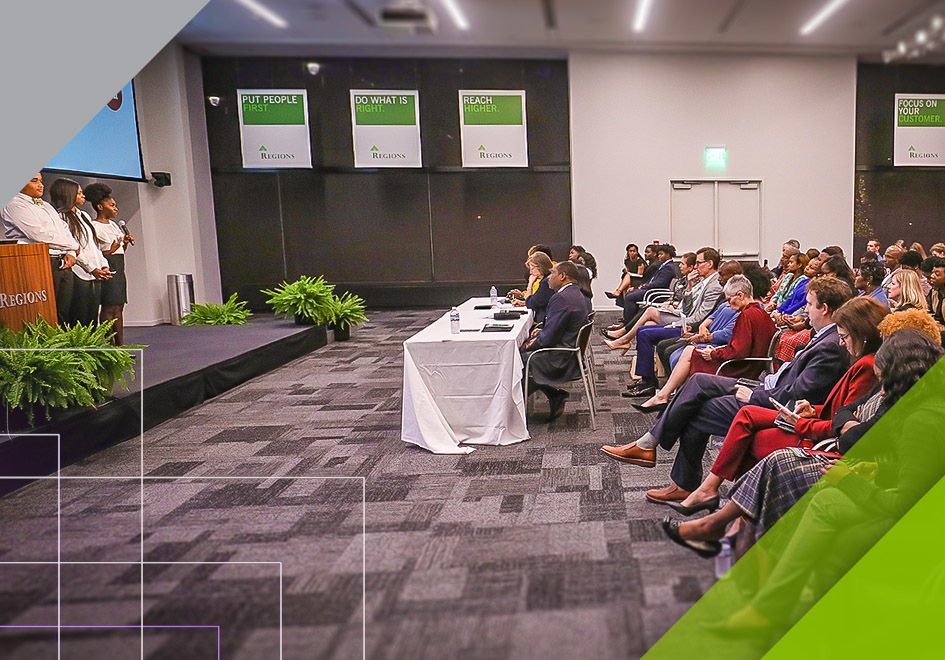
And about cellphones, yes, we are increasingly dependent on them. But there’s a balance to be achieved there, too. Don’t lose touch with the people around you, Secretary Rice advised, while staring at videos on a screen.
“That video isn’t going to be there to talk to you when something goes wrong,” she said. However, “that person that you’ve gotten to know, that friend, that family member, they’ll be there.”
Plus, remember the value of reputation.
“Resolve that you’re going to control social media. It’s not going to control you,” Secretary Rice encouraged students. “You’re all going to be leaders. You don’t want anything showing up on social media when you’re 35 that you wrote when you’re 18, and now you’re sorry you wrote it. Your reputation is all you have in the final analysis. Protect it.”
The discussion between Secretary Rice and Birmingham students was the latest example of Regions’ collaboration with the nonprofit Birmingham Education Foundation to support academic opportunities for the city’s youth. And it’s one of several examples of Secretary Rice giving of her time and expertise to inspire tomorrow’s leaders.
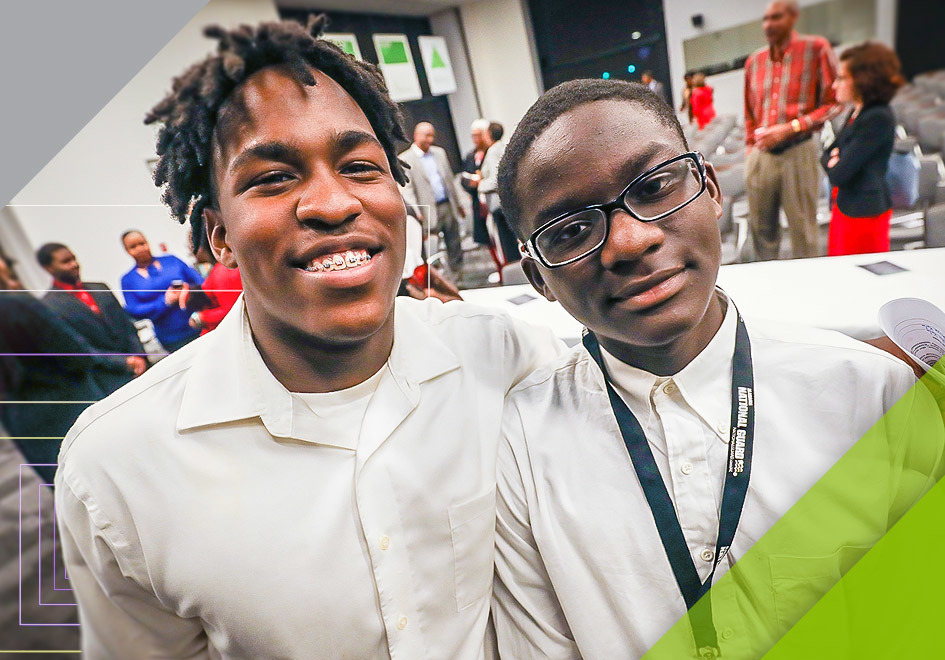
J.W. Carpenter, Executive Director of the Birmingham Education Foundation, said students in the Educate Local program represent the strength, and the promise, of students throughout the district.
“We have students, all 22,000-plus, in the Birmingham City Schools who have limitless potential,” Carpenter said. “They are forces for greatness. And it is our privilege at the Birmingham Education Foundation to get to work with them – to help build a diverse network to give them the opportunities they deserve to graduate well prepared for college, careers and life.”
Expect more barriers to be broken as these future leaders pursue, and attain, success.
